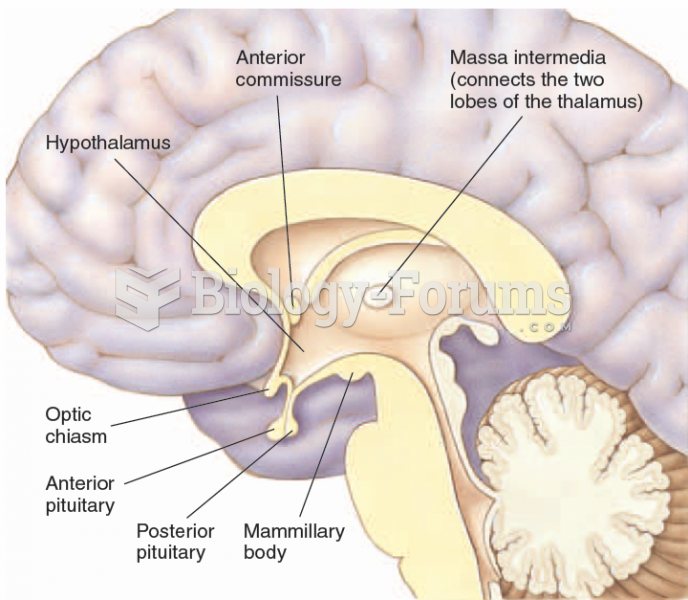|
|
|
As many as 28% of hospitalized patients requiring mechanical ventilators to help them breathe (for more than 48 hours) will develop ventilator-associated pneumonia. Current therapy involves intravenous antibiotics, but new antibiotics that can be inhaled (and more directly treat the infection) are being developed.
Pregnant women usually experience a heightened sense of smell beginning late in the first trimester. Some experts call this the body's way of protecting a pregnant woman from foods that are unsafe for the fetus.
After a vasectomy, it takes about 12 ejaculations to clear out sperm that were already beyond the blocked area.
Increased intake of vitamin D has been shown to reduce fractures up to 25% in older people.
More than 34,000 trademarked medication names and more than 10,000 generic medication names are in use in the United States.







